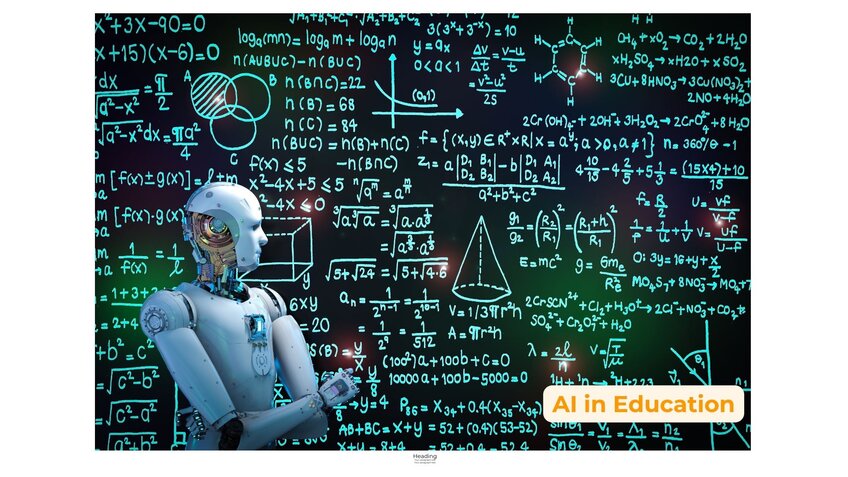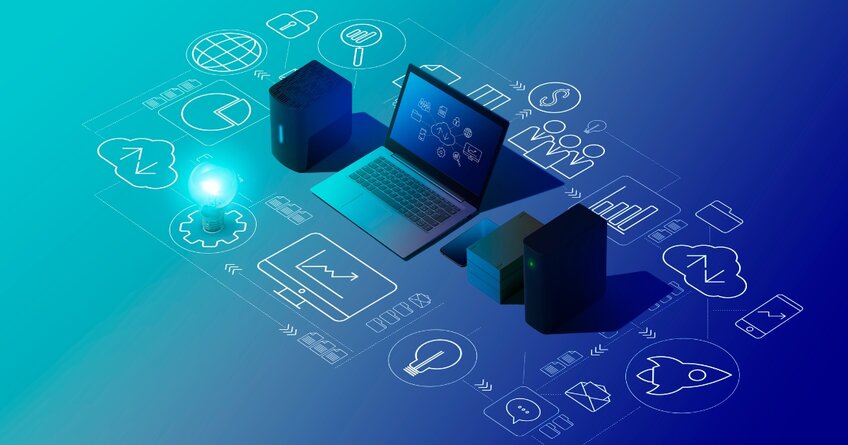The Intersection of AI and Online Tutoring: Trends, Challenges, and Opportunities

Introduction
Education, of which online tutoring is an increasingly popular mode of delivery, is essentially the exchange of information, mainly from an expert to a student. Online tutoring, a recent phenomenon, serves as a method of virtually imparting knowledge by experts to students. Artificial Intelligence (AI) is rapidly transforming various sectors, with education being one of the most significant areas of impact. AI is adding new gears, tools, and machinery to the internet, further revolutionizing how people access information. AI is making substantial changes in industries, with education being notably influenced by this progress. The integration of AI into tutoring is rapidly changing how tutors teach and how students learn, more so if the interaction happens online. This blog post explores the global landscape of AI in education, its potential in personalized online learning, leading companies in this field, the challenges and ethical considerations, and the future opportunities AI presents.
AI Adoption in Education
The adoption of AI in education is on the rise, driven by the demand for personalized learning and efficient administrative processes. AI technologies, such as machine learning, natural language processing, and adaptive learning systems, are enabling educators to personalize their teaching methods to suit individual students and simultaneously streamline their workloads. The global landscape of education is marked by significant investments and innovations in AI technologies aimed at enhancing learning outcomes and accessibility.
The Global Landscape of AI in Education
Globally, institutions, government organizations, and private companies are beginning to use AI to address various educational challenges. In countries like the United States, China, and India that are leading the charge, it is becoming quite common to integrate AI into educational systems to improve student engagement and performance. AI-driven platforms are providing insightful solutions for personalized learning, enabling efficient administrative tasks, and resulting early intervention for student success. These technologies are making education more accessible, especially in remote and underserved areas, by offering scalable and cost-effective learning solutions.

The Potential of AI for Personalized Learning
AI's potential to help personalize learning is one of its most transformative aspects. These systems can analyze vast amounts of data to understand each student's learning style, pace, and preferences, thereby delivering customized learning experiences. For instance, Intelligent Tutoring Systems (ITS) use AI to provide personalized feedback and recommendations, helping students to understand complex concepts and improve their performance. This individualized approach ensures that students receive the support they need when they need it, enhancing their overall learning experience.
My Engineering Buddy (MEB), a leading online tutoring company, found that a student was struggling with advanced calculus. Using an AI-powered tutoring system, her tutor was able to identify her specific pain points and tweak her learning plan accordingly. Within weeks, her performance improved dramatically, illustrating the power of personalized learning.
AI in Schools
AI is being integrated into schools through various innovative tools and platforms:
- Adaptive Learning Platforms: These platforms use AI to adjust the difficulty and type of content presented to students based on their learning progress and needs.
- Chatbots Enhancing Support: AI-powered chatbots provide instant support to students, answering their questions and guiding them through their learning activities.
- Gamification for Engagement: AI-driven gamification techniques make learning more engaging and interactive, motivating students to participate actively in their education.
- AI Tutors for Skill Development: AI tutors offer personalized instruction and feedback, helping students develop specific skills and master new concepts.
Challenges and Ethical Considerations
Despite its potential, the integration of AI in education isn’t without its challenges and ethical considerations:
- Equity Concerns: Ensuring that all students have access to AI-driven educational tools is critical. There is a risk that disparities in access to technology could widen the educational gap between different socio-economic groups.
- Teacher Training and Adaptation: Educators need to be adequately trained to use AI tools effectively. This requires continuous professional development and support to integrate AI into their teaching practices.
- Data Privacy Concerns: The use of AI in education involves the collection and analysis of large amounts of student data. Ensuring the privacy and security of this data is paramount to protect students’ rights.
- Bias in Algorithms: AI systems can inadvertently perpetuate biases present in the data they are trained on. It is essential to develop and implement strategies to identify and mitigate these biases.
- Overemphasis on Standardized Testing: There is a concern that AI might reinforce a narrow focus on standardized testing, potentially overlooking other critical aspects of education such as creativity and critical thinking.
During a particularly busy exam season, a freelance online tutor utilized AI to manage grading and feedback for assignments. This not only saved significant time but also provided the students with instant, detailed feedback, which helped them prepare more effectively for their exams.
Supporting Teachers and Learners
AI has the potential to support both teachers and learners in several ways. For teachers, AI can automate administrative tasks such as grading and attendance tracking, allowing them to focus more on teaching and interacting with students. AI-powered tools can provide insights into student performance, helping teachers to identify those who need additional support. For learners, AI offers personalized learning paths, real-time feedback, and adaptive learning resources that cater to their unique needs and preferences.
Companies and Startups Leading the Way
Several companies and startups are at the forefront of integrating AI into online tutoring:
- Julius AI: Focuses on applying AI to enhance eLearning experiences by creating interactive, adaptive, and engaging educational content.
- My Engineering Buddy: Incorporates tools from Quizizz and DreamBox Learning to make math tutoring sessions more interactive and personalized. The result is an increase in student engagement and comprehension, as reflected in their improved test scores and feedback.
- Squirrel AI: This company uses AI to offer adaptive learning solutions, providing personalized educational experiences that adjust to the learning needs of each student.
- Caktus AI: Specializes in creating AI-driven educational tools that enhance student engagement and learning efficiency.
- Carnegie Learning: Combines AI and cognitive science to develop personalized learning solutions that improve student outcomes.
- Knewton: Provides adaptive learning technologies that personalize educational content based on student performance and engagement data.
- Duolingo: Uses AI to offer personalized language learning experiences, adapting to the learner’s pace and proficiency.
- Quizizz: Leverages AI to create engaging quizzes and learning activities that are tailored to individual student needs.
- DreamBox Learning: Utilizes AI to provide adaptive math education, offering personalized lesson plans and feedback to students.
Conclusion
The intersection of AI and education holds immense promise for the future of learning. By personalizing education and making it more accessible, AI has the potential to revolutionize the way we teach and learn. However, it is essential to address the challenges and ethical considerations associated with AI to ensure that its benefits are equitably distributed and that it enhances, rather than hinders, the educational experience. By striking the right balance and leveraging AI responsibly, we can create a future where learning is more personalized, engaging, and effective for all students.
